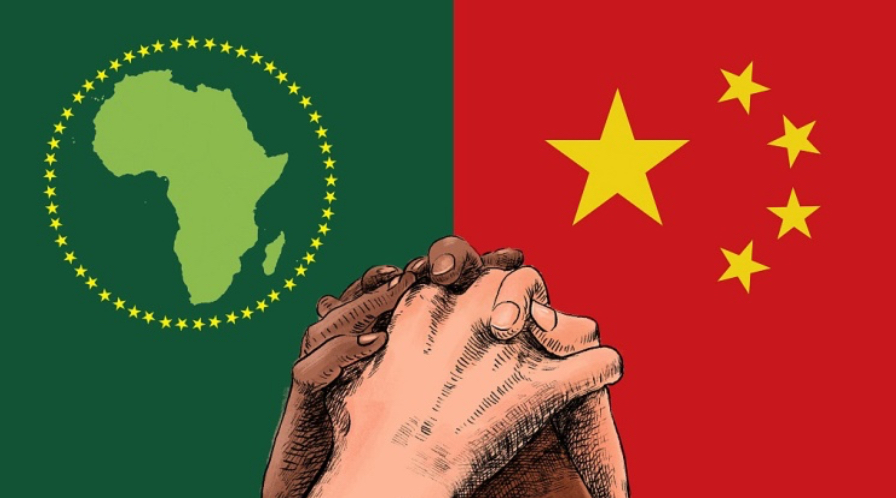Published: April 17,2024
By Staff writer

Since 1956, China established diplomatic relations with African countries and the first ten countries include: Guinea, Egypt, Sudan, Algeria, and morocco, Tunisia, Mali, Ghana, Guinea-Bissau, and Mauritania. Diplomatic relations and cooperation between China and Africa has grown over the years. As of January 2022, China had established diplomatic relations with 53 as well as the African Union. In order for the Sino-Africa relations to keep growing and getting stronger, the following pillars are the cornerstone of Sino-Africa relations.
1.Mutual Respect and Understanding
Building a strong foundation for Sino-African relations requires mutual respect and understanding of each other’s cultures, values, and histories. China and African nations must engage in cultural exchanges, educational programs, and people-to-people interactions to foster greater empathy and appreciation. By promoting cross-cultural understanding, both sides can mitigate misunderstandings and build trust, laying the groundwork for deeper cooperation.
2. Economic Diversification
While China has been a crucial partner in Africa’s economic development, there’s a need to move beyond resource extraction and focus on economic diversification. China can support African nations in developing sustainable industries such as manufacturing, technology, and services. By investing in infrastructure, promoting entrepreneurship, and facilitating knowledge transfer, China can help African economies transition to higher value-added activities, reducing dependence on commodity exports.
3. Infrastructure Investment
Infrastructure development remains a top priority for Africa’s growth and connectivity. China’s expertise in infrastructure construction can play a pivotal role in addressing Africa’s infrastructure deficit. However, projects should prioritize sustainability, local capacity building, and community engagement. Through transparent financing mechanisms and adherence to environmental and social standards, China can ensure that infrastructure investments contribute to long-term economic growth and social development in Africa.
4. Education
Investing in education and skills development is essential for empowering Africa’s youth and driving innovation and productivity. China can support African countries in establishing vocational training programs, scholarships, and academic exchanges. By sharing expertise in science, technology, engineering, and mathematics (STEM) fields, China can help equip the next generation of African leaders with the skills needed to thrive in the global economy.
5. Environmental sustainability
Addressing environmental challenges is critical for the sustainable development of both China and Africa. Collaborative efforts to combat climate change, protect biodiversity, and promote renewable energy can yield mutual benefits. China’s experience in renewable energy technology and green finance can complement Africa’s vast renewable energy potential. Through joint research initiatives and investment in clean energy projects, China and Africa can pave the way for a greener and more sustainable future.
6. Good Governance and Accountability
Promoting good governance, transparency, and accountability is essential for fostering trust and stability in Sino-African relations. China can support African governments in strengthening institutions, enhancing legal frameworks, and combating corruption. By promoting responsible investment practices and adherence to international standards, China can contribute to the creation of a conducivebusiness environment that attracts sustainable investment and promotes inclusive growth.
7. People-Centred Cooperation
Ultimately, the success of Sino-African relations hinges on prioritizing the well-being and aspirations of the people. China can engage with African civil society organizations, community leaders, and grassroots initiatives to ensure that development projects are inclusive, responsive to local needs, and promote social justice. By placing people at the center of cooperation efforts, China and Africa
 Africa -China Review Africa -China Cooperation and Transformation
Africa -China Review Africa -China Cooperation and Transformation
